Ethical Challenges in Information Disorder (INT-M5-01-EN)
Objectives
- To recognize ethical dilemmas related to information disorder;
- To accept and take the responsibility for content creation;
- To encourage responsible information sharing practices.
Target group(s)
Teachers, librarians, youth counsellors, sport-trainers, front liners, students
Description
Introduction – Ice breaker
The facilitator uses a brainstorming approach on the topic of ethics as an ice breaker. He addresses the participants with questions: What is ethics, how do we understand it, do we learn or acquire ethical behavior, which values strengthen ethics and which do not, etc.. He writes down their answers on a flipchart. It is written down for all to see.
Following steps
Step 1. Divide participants into three groups and present them with real-life examples of information disorder - misinformation, disinformation, and mal-information, illustrating examples from various contexts. (visual, auditory, tactile).
Ask them to analyze and identify the type of disorder, potential motivations, and the impact on individuals or society. (Please see the examples in the handouts).
Step 2. Open and support interactive discussion. Facilitate a discussion on ethical challenges related to information disorder, focusing on topics like media responsibility, freedom of speech, and the societal impact of false information.
Step 3. Engage participants in a role-play scenarios where they have to decide whether to share a piece of information on social media, or disseminate them. Emphasize the importance of verifying information before sharing. Regardless of the examples in the handouts, of course you can design your own example scenarios.
Please note:
Engaging participants in role-play scenarios is an effective way to help them understand the importance of verifying information before sharing it on social media. Here's a suggested structure for the role-play activity.
Encourage active participation and open communication within the groups.
Emphasize that the goal is not to catch participants making mistakes but to learn from the experience.
Use real-life examples to illustrate the potential impact of misinformation.
This role-play scenario can be a valuable tool in promoting media literacy and responsible social media behavior among participants.
Objective
The primary goal of this activity is to raise awareness about the responsibility of sharing information on social media and the importance of fact-checking before dissemination.
Materials Needed
Scenario cards: Create cards that describe different situations where participants must decide whether to share information on social media or not. Include a mix of scenarios, some of which require fact-checking and verification.
Evaluation criteria: Develop a set of criteria for evaluating the decisions made during the role-play, such as the accuracy of information, potential consequences of sharing misinformation, and the importance of fact-checking.
Instructions
Introduction (15 minutes)
Briefly explain the purpose of the activity: to simulate real-life decision-making situations related to sharing information on social media.
Emphasize the potential impact of misinformation on individuals and society.
Role-play Scenarios (30 minutes)
Divide participants into small groups.
Distribute scenario cards to each group. Each scenario should present a different situation where the participants must decide whether to share information on social media or not.
Encourage participants to discuss the scenarios within their groups and make decisions based on the information provided.
Role-play Debrief (20 minutes)
Have each group share their decisions and the reasoning behind them with the entire group.
Facilitate a discussion on the challenges and considerations they faced during the role-play.
Highlight the importance of verifying information before sharing and the potential consequences of spreading misinformation.
Group Reflection (15 minutes)
Ask participants to reflect on what they learned from the activity.
Discuss how they can apply the principles of fact-checking and responsible information sharing in their daily lives.
Conclusion (10 minutes)
Summarize key takeaways from the activity.
Provide additional resources or tips for fact-checking and verifying information on social media.
Step 4. (Before final feed-back): At the end connect all three parts of the workshop and write the results, findings and knowledge of the group members on a flipchart.
Step 5. Final feed-back: At the end of this session (workshop) ask participants to reflect (feed-back) on what they've learned and create a personal or group action plan for promoting ethical behaviour in the face of information disorder.
Material
- Flipchart, paper, pen, coloured markers, role-play scenarios cards.
Methods
- Experiential learning
- Role-play
- Discussion
Advice for Facilitators
Emphasize the importance of open and respectful discussion, ensuring that participants feel comfortable sharing their opinions. Avoid imposing personal views to foster an unbiased learning environment. Actively involve participants through discussions, group activities, and role-play. This enhances engagement and deepens understanding. Provide participants with additional resources for further reading, fact-checking tools, and ethical guidelines to continue their learning beyond the workshop.
Sources
Bercko, S. (2019). Social Literacy Guidelines. Lifelong Learning Programme (Grundtvig) No. 527497-LLP-1-2012-SI (integra Institute)
Calendar
Announcements
- - There are no announcements -

